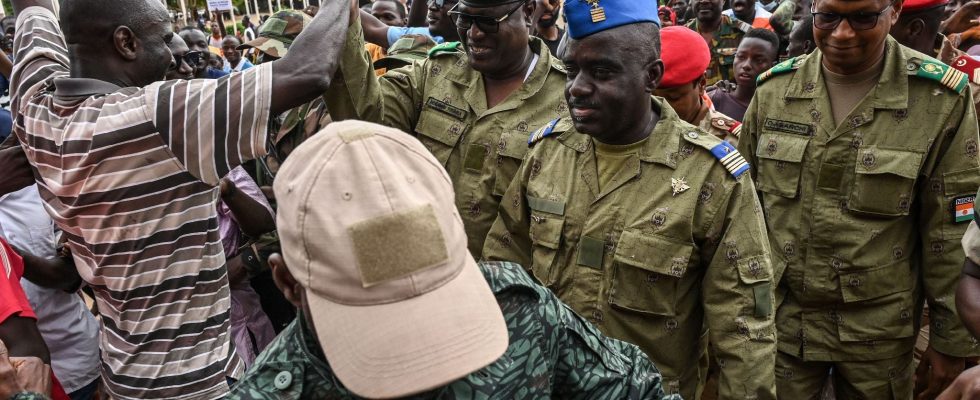After the French, the American military could in turn be expelled from Niger. The regime of generals in power in Niamey denounced this Saturday March 16 “with immediate effect” the military cooperation agreement signed with the United States in 2012, affirming that the American presence was “illegal”.
Quickly after coming to power in a coup d’état on July 26, 2023, the Niamey regime denounced military cooperation agreements with France, and the last French soldiers left Niger at the end of December. Washington had suspended its cooperation with Niger after the coup which overthrew elected president Mohamed Bazoum. But the United States has some 1,100 soldiers engaged in the anti-jihadist fight in the country and has a large drone base in Agadez (north). In December they said they were ready to resume this cooperation, under conditions.
Saturday evening, Colonel Amadou Abdramane, spokesperson for the regime, indicated that the Nigerien government “taking into account the aspirations and interests of its people” had decided “with all responsibility to denounce with immediate effect the agreement relating to the status of United States military personnel and civilian employees of the United States Department of Defense in the territory of Niger. In a press release, read on national television, he specifies that the American military presence is “illegal” and “violates all constitutional and democratic rules”.
According to Niamey, this “unfair” agreement was “unilaterally imposed” by the United States, via a “simple note verbale”, on July 6, 2012. This decision comes after a three-day visit by an American delegation led by the Assistant Secretary of State for African Affairs, Molly Phee, who was unable to meet the head of the military regime Abdourahamane Tiani, according to a Nigerien government source. “The arrival of the American delegation did not respect diplomatic practices,” Amadou Abdramane explained on Saturday, ensuring that the American government had informed Niamey “unilaterally” of its arrival date and the composition of its delegation. .
“Condescending attitude”
He also denounced Molly Phee’s “condescending attitude”, “an attitude likely to undermine the nature” of relations between the two countries, according to him. Arriving in Niamey on Tuesday, this American delegation was initially scheduled to spend two days there, but decided to extend its stay, according to the Nigerien government source. However, she was able to meet twice with the Prime Minister appointed by the military, Ali Mahaman Lamine Zeine.
The spokesperson for the American State Department, Matthew Miller, informed X that Washington had taken note of the press release from the Niamey regime and that it followed “frank discussions […] on our concerns” regarding the “trajectory” of the junta. The United States is still in contact with the junta and will provide new information “if necessary”, he added. The Pentagon provided AFP with a identical declaration.
Saturday evening, Colonel Abdramane also spoke of the return to constitutional order in this country which has moved closer to its neighbors Burkina and Mali – also governed by soldiers – but also to countries like Iran or the Russia. “The government of Niger has reaffirmed its firm desire to organize as soon as possible the return to normal constitutional life,” he declared, assuring that it was a “solemn commitment” from the president of the transition, “as expressed in his address to the Nation on August 19”.
During this message, General Tiani then mentioned a transition of three years maximum and that its duration would be fixed by a “national dialogue”. Since the coup d’état, Niger has notably – like Burkina and Mali – left the Economic Community of West African States (ECOWAS), which had heavily sanctioned it before lifting a large part at the end of February of these sanctions.
Niger, Burkina Faso and Mali have announced the creation of a joint force to fight against jihadists who regularly strike their three countries.
